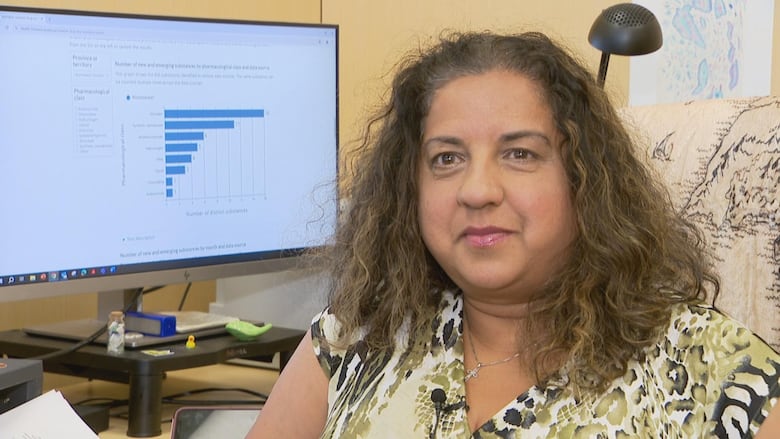Measles cases in Alberta pose risk for the territory, says N.W.T. public health
Northern Alberta has had a high number of measles cases this year

As many people living in the Northwest Territories travel through Alberta over the summer, the territory's chief public health officer says that comes with a risk of measles exposure and she's urging residents to check their vaccination status.
"This is something we're watching very carefully," Dr. Kami Kandola said.
As of July 24, Alberta has seen 1,511 measles cases this year, the latest data available from the province shows. Of them, 465 have been detected in northern Alberta, the second most affected region behind southern Alberta.
Kandola said this is an area that sees a lot of traffic from N.W.T. residents, which increases the risk of the infection returning north with travellers.
Measles is an airborne disease, so it can be contracted even after the contagious person has left the area.
"Measles is very talented at finding the susceptible people because it is so contagious," said Dr. Lynora Saxinger, an infectious diseases specialist at the University of Alberta Hospital.
Saxinger said if an active measles case is near someone who is not immunized against it, there is a 90 per cent chance that person will contract it.
"There's a significant suspicion [that] there's a lot more spread that isn't being captured in the case counts," she said.
It is likely that health care workers in Alberta are only seeing the sickest patients, and that many people weathering out the illness at home are going undetected, she said.
Kandola said she doesn't expect the same to be true in the Northwest Territories because of its smaller communities.
"If someone is visiting, they see someone with a big red blotchy rash on their face and they know they had travelled or they knew that they were sick," she said, "everyone will be talking, and we would find out sooner or later if someone had measles."
In the N.W.T., the Tłı̨chǫ region is the most vulnerable, Kandola said. In other regions, over 90 per cent of five-year-olds have received at least one dose of the vaccine, but the rate drops to 77 per cent in the Tłı̨chǫ.
Back to school
With a month to go before the start of back-to-school season, the window to get children immunized against measles before they return to the classroom is narrowing.
"You would want them to have a couple of weeks before school start to have full effect from the vaccination," Saxinger said. "It'll be pretty tight even if people start looking into it right now."
Children need two doses of the vaccine, given at least four weeks apart, to be considered fully immunized.
Yellowknife Catholic Schools temporarily closed two of its schools in early May after the chief public health officer warned that children might have been exposed to a case of measles.
Adam Murray, the school board's superintendent, said they have a close relationship with public health authorities ahead of the new school year, and praised their response in the spring.
He noted clinics were set up in schools afterward and that more children have been able to get vaccinated since.
"We'll be well prepared for this," Murray told CBC. "We're looking forward to a healthy school year."
Immunization rates are only updated yearly for the territory, but Kandola said there has been a surge in demand for measles vaccines since the case detected in May.
"That's a really good sign," she said.

